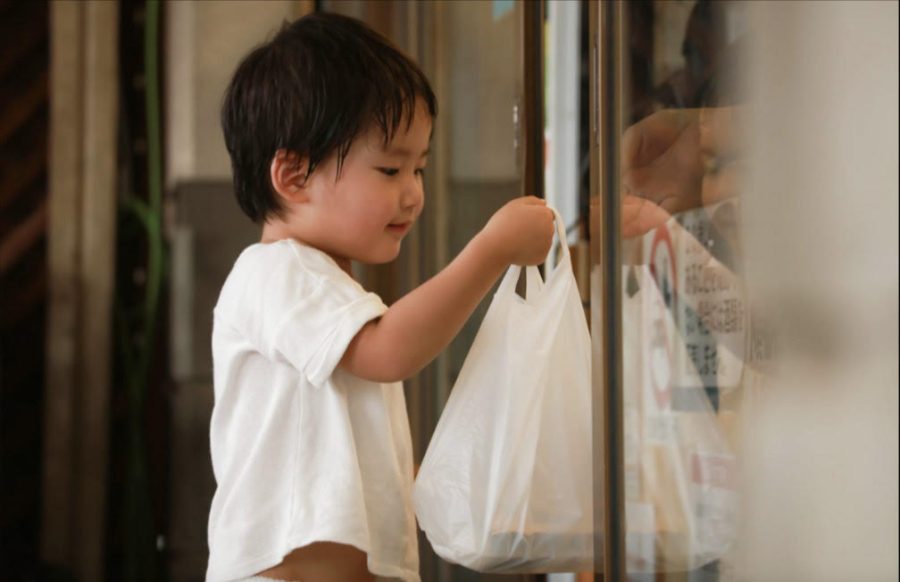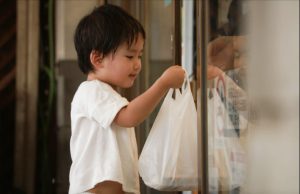Netflix series ‘Old Enough’ strikes controversy in parenting style
Netflix series ‘Old Enough’ highlights Japanese culture and provides entertainment to viewers, although the show only features a few children, it is also exemplary of everyday life for many kids.
One of the many benefits of streaming services such as Netflix is that they attract a new audience to older- running television shows. The series ‘Old Enough’ has been running for over 30 years but was put on Netflix only last week. The show takes place in Japan where it features toddlers, typically ranging from two to four years old, being tasked to complete familiar duties such as bringing clothing to the cleaners, bringing fish to the fishmonger, etc., for the first time completely on their own. Even though children are filmed by a camera crew from a distance, the children are virtually left alone to complete their tasks. Engaging and adorable, the 20- episodes on Netflix, each only 10 to 20 minutes, make the show an easy watch.
The show has fostered debate and interesting conversation amongst parents, and viewers in general. Tanith Carey, child behavior author, finds errors in the nature of the show.
“I broadly support the idea that children should be taught to do more for themselves. When children feel confident, it builds self-esteem. But — and this is a very big ‘but’ — the tasks that adults ask them to perform have to be appropriate for their development,” Carey told Insider magazine. “It errs on the side of making young children figures of fun and laughing at them by asking them to perform tasks they are not developmentally ready for.”
Although in nature the show is meant to be light-hearted and fun, celebrating youth independence, some of its audience did not perceive it in such a way, stating that toddlers crying is “neglect” and that the children are not old enough for their assigned tasks. I can understand how filming toddlers upset can be seen as invasive but in all, the show seems to have pure intentions. An alternate perspective demonstrated in the media after the show’s release is that the show highlights cultural differences between countries.
Professor Toshiyuki Shiomi told the New York Times that the show demonstrates a typical way of raising children and proves symbolic of Japan’s cultural approach which may come as a surprise to foreign audiences. Japanese culture elaborates on the importance of teaching independence to children at a young age to build self-esteem.
“The biggest gift parents can give their children is the opportunity to make their own decisions,” Psychologist Holly Schiffrin said to the Journal of Child and Family Studies. “Parents who ‘help’ their children too much stress themselves out and leave their kids ill-prepared to be adults.”
The show successfully calls attention to the cultural differences between countries and diverse perceptions within the media making it worth the watch.
According to Insider, Lenore Skenazy, president of a nonprofit childhood independence program, recounts parenting styles in Japan as more relaxed than parenting in America.
Personally, I think that the show is a great watch. It is not only educational, it’s also adorable to see young children finding their way in a big world. The intentions of the show are genuine and seeing children be proud of themselves after finding success in their tasks is worth the heart strain of watching them get frustrated. With that being said, this isn’t a show I would prefer to binge in one sitting or re-watch as the episodes get pretty repetitive. Although the show has been a smashing success in Japan, I don’t think that it’s worth all of the hype it has received since it is more so short clips rather than a full-blown television show. Overall, I would recommend this show if you don’t have anything set to watch but would give it ⅗ stars.

Audience Engagement Manager Margot Richlin ’23 is someone who thrives within communities. The same pull first attracted her to Inklings.
“I joined...



























































